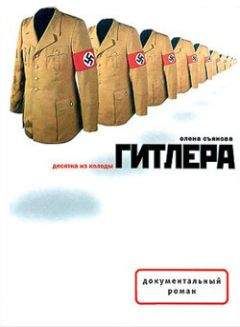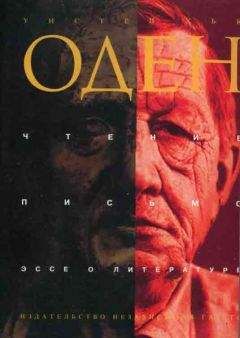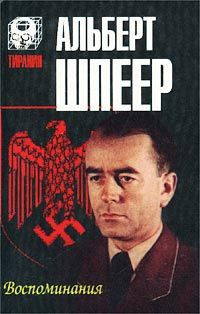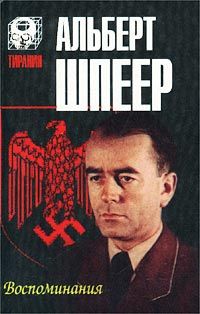Уистан Оден - Стихи и эссе
1938
from In Time of War
I
So from the years the gifts were showered; each
Ran off with his at once into his life:
Bee took the politics that make a hive,
Fish swam as fish, peach settled into peach.
And were successful at the first endeavour;
The hour of birth their only time at college,
They were content with their precocious knowledge,
And knew their station and were good for ever.
Till finally there came a childish creature
On whom the years could model any feature,
And fake with ease a leopard or a dove;
Who by the lightest wind was changed and shaken,
And looked for truth and was continually mistaken,
Ana envied his few friends and chose his love.
VIII
He turned his field into a meeting-place,
And grew the tolerant ironic eye,
And formed the mobile money-changer's face,
And found the notion of equality.
And strangers were as brothers to his clocks,
And with his spires he made a human sky;
Museums stored his learning like a box,
And paper watched his money like a spy.
It grew so fast his life was overgrown,
And he forgot what once it had been made for,
And gathered into crowds and was alone,
And lived expensively and did without,
And could not find the earth which he had paid for,
Nor feel the love that he knew all about.
XXI
The life of man is never quite completed;
The daring and the chatter will go on:
But, as an artist feels his power gone,
These walk the earth and know themselves defeated.
Some could not bear nor break the young and mourn for
The wounded myths that once made nations good,
Some lost a world they never understood,
Some saw too clearly all that man was born for.
Loss is their shadow-wife, Anxiety
Receives them like a grand hotel; but where
They may regret they must; their life, to hear
The call of the forbidden cities, see
The stranger watch them with a happy stare,
And Freedom hostile in each home and tree.
XXV
Nothing is given: we must find our law.
Great buildings jostle in the sun for domination;
Behind them stretch like sorry vegetation
The low recessive houses of the poor.
We have no destiny assigned us:
Nothing is certain but the body; we plan
To better ourselves; the hospitals alone remind us
Of the equality of man.
Children are really loved here, even by police:
They speak of years before the big were lonely,
And will be lost.
And only
The brass bands throbbing in the parks foretell
Some future reign of happiness and peace.
We learn to pity and rebel.
1938
In Memory of W. B. Yeats
I
He disappeared in the dead of winter:
The brooks were frozen, the airports almost deserted,
And snow disfigured the public statues;
The mercury sank in the mouth of the dying day.
What instruments we have agree
The day of his death was a dark cold day.
Far from his illness
The wolves ran on through the evergreen forests,
The peasant river was untempted by the fashionable quays;
By mourning tongues
The death of the poet was kept from his poems.
But for him it was his last afternoon as himself,
An afternoon of nurses and rumours;
The provinces of his body revolted,
The squares of his mind were empty,
Silence invaded the suburbs,
The current of his feeling failed; he became his admirers.
Now he is scattered among a hundred cities
And wholly given over to unfamiliar affections,
To find his happiness in another kind of wood
And be punished under a foreign code of conscience.
The words of a dead man
Are modified in the guts of the living.
But in the importance and noise of to-morrow
When the brokers are roaring like beasts on the floor of the Bourse,
And the poor have the sufferings to which they are fairly accustomed,
And each in the cell of himself is almost convinced of his freedom,
A few thousand will think of this day
As one thinks of a day when one did something slightly unusual.
What instruments we have agree
The day of his death was a dark cold day.
II
You were silly like us; your gift survived it all:
The parish of rich women, physical decay,
Yourself. Mad Ireland hurt you into poetry.
Now Ireland has her madness and her weather still,
For poetry makes nothing happen: it survives
In the valley of its making where executives
Would never want to tamper, flows on south
From ranches of isolation and the busy griefs,
Raw towns that we believe and die in; it survives,
A way of happening, a mouth.
III
Earth, receive an honoured guest:
William Yeats is laid to rest.
Let the Irish vessel lie
Emptied of its poetry.
In the nightmare of the dark
All the dogs of Europe bark,
And the living nations wait,
Each sequestered in its hate;
Intellectual disgrace
Stares from every human face,
And the seas of pity lie
Locked and frozen in each eye.
Follow, poet, follow right
To the bottom of the night,
With your unconstraining voice
Still persuade us to rejoice;
With the firming of a verse
Make a vineyard of the curse,
Sing of human unsuccess
In a rapture of distress;
In the deserts of the heart
Let the healing fountain start,
In the prison of his days
Teach the free man how to praise.
1939
Law Like Love
Law, say the gardeners, is the sun,
Law is the one
All gardeners obey
To-morrow, yesterday, to-day.
Law is the wisdom of the old,
The impotent grandfathers feebly scold;
The grandchildren put out a treble tongue,
Law is the senses of the young.
Law, says the priest with a priestly look,
Expounding to an unpriestly people,
Law is the words in my priestly book,
Law is my pulpit and my steeple.
Law, says the judge as he looks down his nose,
Speaking clearly and most severely,
Law is as I've told you before,
Law is as you know I suppose,
Law is but let me explain it once more,
Law is The Law.
Yet law-abiding scholars write:
Law is neither wrong nor right,
Law is only crimes
Punished by places and by times,
Law is the clothes men wear
Anytime, anywhere,
Law is Good-morning and Good-night.
Others say, Law is our Fate;
Others say, Law is our State;
Others say, others say
Law is no more,
Law has gone away.
And always the loud angry crowd,
Very angry and very loud,
Law is We,
And always the soft idiot softly Me.
If we, dear, know we know no more
Than they about the Law,
If I no more than you
Know what we should and should not do
Except that all agree
Gladly or miserably
That the Law is
And that all know this,
If therefore thinking it absurd
To identify Law with some other word,
Unlike so many men
I cannot say Law is again,
No more than they can we suppress
The universal wish to guess
Or slip out of our own position
Into an unconcerned condition.
Although I can at least confine
Your vanity and mine
To stating tirmidly
A timid similarity,
We shall boast anyway:
Like love I say.
Like love we don't know where or why,
Like love we can't compel or fly,
Like love we often weep,
Like love we seldom keep.
1939
Under Which Lyre
Ares at last has quit the field,
The bloodstains on the bushes yield
To seeping showers,
And in their convalescent state
The fractured towns associate
With summer flowers.
Encamped upon the college plain
Raw veterans already train
As freshman forces;
Instructors with sarcastic tongue
Shepherd the battle-weary young
Through basic courses.
Among bewildering appliances
For mastering the arts and sciences
They stroll or run,
And nerves that steeled themselves to slaughter
Are shot to pieces by the shorter
Poems of Donne.
Professors back from secret missions
Resume their proper eruditions,
Though some regret it;
They liked their dictaphones a lot,
They met some big wheels, and do not
Let you forget it.
But Zeus' inscrutable decree
Permits the will-to-disagree
To be pandemic,
Ordains that vaudeville shall preach
And every commencement speech
Be a polemic.
Let Ares doze, that other war
Is instantly declared once more
'Twixt those who follow
Precocious Hermes all the way
And those who without qualms obey
Pompous Apollo.
Brutal like all Olympic games,
Though fought with similes and Christian names
And less dramatic,
This dialectic strife between
The civil gods is just as mean,
And more fanatic.
What high immortals do in mirth
Is life and death on Middle Earth;
Their a-historic
Antipathy forever gripes
All ages and somatic types,
The sophomoric
Who face the future's darkest hints
With giggles or with prairie squints
As stout as Cortez,
And those who like myself turn pale
As we approach with ragged sail
The fattening forties.
The sons of Hermes love to play,
And only do their best when they
Are told they oughtn't;
Apollo's children never shrink
From boring jobs but have to think
Their work important.
Related by antithesis,
A compromise between us is
Impossible;
Respect perhaps but friendship never:
Falstaff the fool confronts forever
The prig Prince Hal.
If he would leave the self alone,
Apollo's welcome to the throne,
Fasces and falcons;
He loves to rule, has always done it;
The earth would soon, did Hermes run it,
Be like the Balkans.
But jealous of our god of dreams,
His common-sense in secret schemes
To rule the heart;
Unable to invent the lyre,
Creates with simulated fire
Official art.
And when he occupies a college,
Truth is replaced by Useful Knowledge;
He pays particular
Attention to Commercial Thought,
Public Relations, Hygiene, Sport,
In his curricula.
Athletic, extrovert and crude,
For him, to work in solitude
Is the offence,
The goal a populous Nirvana:
His shield bears this device: Mens sana
Qui mal y pense.
To-day his arms, we must confess,
From Right to Left have met success,
His banners wave
From Yale to Princeton, and the news
From Broadway to the Book Reviews
Is very grave.
His radio Homers all day long
In over-Whitmanated song
That does not scan,
With adjectives laid end to end,
Extol the doughnut and commend
The Common Man.
His, too, each homely lyric thing
On sport or spousal love or spring
Or dogs or dusters,
Invented by some court-house bard
For recitation by the yard
In filibusters.
To him ascend the prize orations
And sets of fugal variations
On some folk-ballad,
While dietitians sacrifice
A glass of prune-juice or a nice
Marsh-mallow salad.
Charged with his compound of sensational
Sex plus some undenominational
Religious matter,
Enormous novels by co-eds
Rain down on our defenceless heads
Till our teeth chatter.
In fake Hermetic uniforms
Behind our battle-line, in swarms
That keep alighting,
His existentialists declare
That they are in complete despair,
Yet go on writing.
No matter; He shall be defied;
White Aphrodite is on our side:
What though his threat
To organize us grow more critical?
Zeus willing, we, the unpolitical,
Shall beat him yet.
Lone scholars, sniping from the walls
Of learned periodicals,
Our facts defend,
Our intellectual marines,
Landing in little magazines,
Capture a trend.
By night our student Underground
At cocktail parties whisper round
From ear to ear;
Fat figures in the public eye
Collapse next morning, ambushed by
Some witty sneer.
In our morale must lie our strength:
So, that we may behold at length
Routed Apollo's
Battalions melt away like fog,
Keep well the Hermetic Decalogue,
Which runs as follows:-
Thou shalt not do as the dean pleases,
Thou shalt not write thy doctor's thesis
On education,
Thou shalt not worship projects nor
Shalt thou or thine bow down before
Administration.
Thou shalt not answer questionnaires
Or quizzes upon World-Affairs,
Nor with compliance
Take any test. Thou shalt not sit
With statisticians nor commit
A social science.
Thou shalt not be on friendly terms
With guys in advertising firms,
Nor speak with such
As read the Bible for its prose,
Nor, above all, make love to those
Who wash too much.
Thou shalt not live within thy means
Nor on plain water and raw greens.
If thou must choose
Between the chances, choose the odd;
Read The New Yorker, trust in God;
And take short views.
1946




